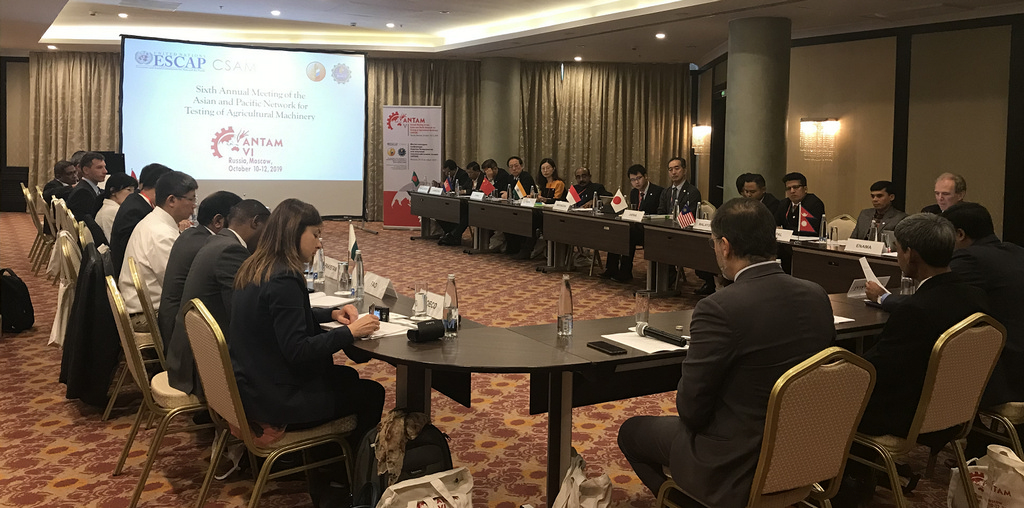ANTAM 6th Annual Meeting in Moscow adopts work plan to ensure safer agricultural machinery in Asia-Pacific

The 6th Annual Meeting of the Asian and Pacific Network for Testing of Agricultural Machinery (ANTAM) closed on Saturday 12 October 2019 with the adoption of a work plan for establishing a network of agricultural machinery testing stations, which is expected to facilitate the trade of safer machinery with better performance.
The annual meeting was organized by the Centre for Sustainable Agricultural Mechanization (CSAM) of the United Nations Economic and Social Commission for Asia and the Pacific (ESCAP) in collaboration with the Russian Association for Testing of Agricultural Machinery and Technology, Ministry of Agriculture of the Russian Federation. The delegates elected the Russian Federation as Chair and Malaysia as Vice-Chair for 2020. The meeting also re-elected the Italian Association for Agricultural Machinery (ENAMA) as ANTAM Technical Reference Unit for another three years.
Unimpeded trade will make better machinery more affordable and available for smallholders in the region, with a direct impact on their livelihoods and food production capabilities. In his congratulatory message to the delegates, H.E. Mr. Dmitry Patrushev, Minister of Agriculture of the Russian Federation, recognized the importance of regional integration of standards and requirements in the agricultural machinery sector. Ms. Yutong Li, Head of CSAM, noted, “By participating in ANTAM, countries are contributing to regional integration while looking at ways to improve the safety and efficiency of agricultural machinery for the benefit of their smallholders and for the improvement of food security in the region.”
The meeting determined next steps for the establishment of a network of testing stations by the end of 2020, which will produce consistent test reports, mutually recognized among the 18 participating countries. The mutual recognition of test reports is expected to lead to a unified certification system, which will also be supported through a quality manual adopted at the meeting which aims at ensuring consistency in competency and technical reliability across the testing stations.
ANTAM testing codes draw upon major international standards and are developed by a pool of regional experts. They represent a joint regional effort involving representatives from the government, research and testing institutes, private sector and manufacturers, and have been recognized as leading practices in South-South cooperation in the UN system. The work of ANTAM also supports the attainment of several Sustainable Development Goals (SDG) including SDG 1: No Poverty, SDG 2: Zero Hunger, as well as SDG 17: Partnerships for the Goals. ANTAM is one of the flagship projects of CSAM. By working with regional stakeholders and the local agricultural sector, ANTAM supports rural development and poverty reduction in the region.
